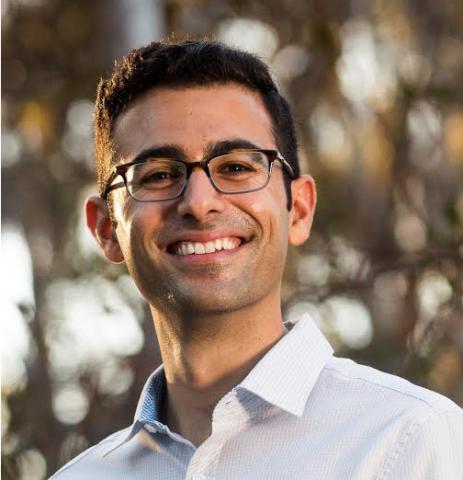Michael Elowitz
Professor of Biology, Bioengineering, and Applied Physics
California Institute of Technology
Seminar Information

Cells use circuits of interacting genes and proteins to control their behaviors, but the design principles that govern genetic circuit architecture usually remain mysterious. Our lab seeks to identify and understand such design principles by constructing or re-wiring minimal versions of key pathways in living cells, and studying their behavior quantitatively and dynamically at the single-cell level. In this talk, I will discuss new work on mammalian signaling pathways and epigenetic memory systems. This work reveals unexpected principles underlying these systems and shows how higher-level representations can provide simple and predictive views of complex molecular pathways.
Michael Elowitz is an HHMI Investigator and Professor of Biology, Bioengineering, and Applied Physics at Caltech. He received his Ph.D. in Physics at Princeton in 1999, and did postdoctoral research at the Rockefeller University, before moving to Caltech in 2003. Dr. Elowitz's research has focused on understanding the design principles that allow circuits of interacting genes and proteins to perform their many critical and amazing functions in living cells. In 2000 he showed how a simple circuit of three repressor genes could produce clock-like protein oscillations in individual bacterial cells. This circuit, dubbed the Repressilator, helped start the new field of synthetic biology. He has also focused on the role of randomness, or 'noise', in the operation of genetic circuits, showing how noise originates in cells, how it impacts gene circuit dynamics, and how it can enable cells to control behaviors like differentiation in a probabilistic fashion. His laboratory has discovered new design principles of the Notch signaling pathways, revealed pulsatile operating modes in gene regulation systems, and analyzed the role of noise in the evolution of bacterial development. His laboratory is now bringing synthetic biology approaches to fundamental developmental problems underlying multicellular signaling, memory, and pattern formation. His work has been recognized by several awards, including fellowships from the Packard and Searle foundations, his selection as a Macarthur Fellow, and the HFSP Nakasone Award.
